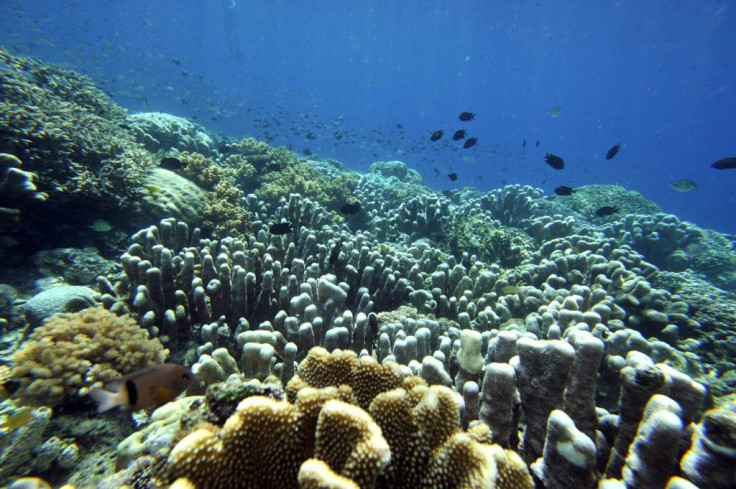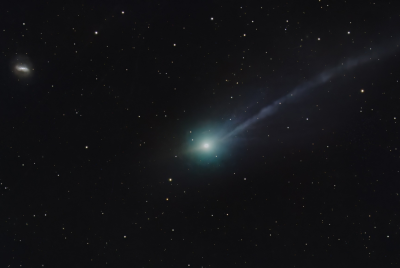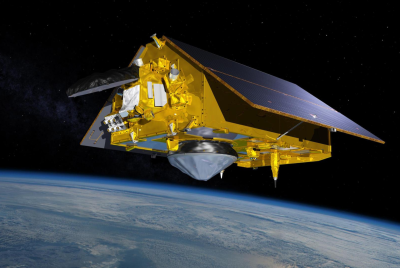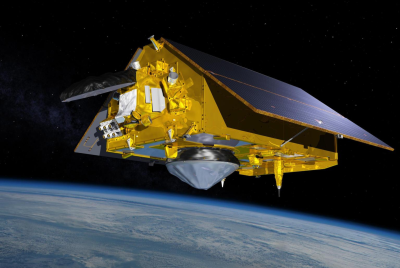UK Government Opens World's Most Remote Marine Science Base on Pitcairn Islands
The new marine science hub, furnished with advanced technology like remote-operated vehicles and underwater video systems, empowers global scientists to study pristine, undisturbed marine ecosystems.

In a landmark development for marine science and conservation efforts, the Governor of the Pitcairn Islands, Iona Thomas, officially inaugurated the UK government-funded marine science base on the remote Pitcairn Islands.
This significant milestone marks the beginning of an era where scientists from around the world will have the opportunity to explore and study some of the most untouched marine habitats on Earth.
The Pitcairn Islands, a UK Overseas Territory located in the South Pacific, are renowned for their breathtaking beauty and unique marine biodiversity.
Comprising a remote volcanic outcrop and three neighbouring islands, this pristine archipelago boasts the status of being the third-largest continuous 'Highly Protected' Marine Protected Area (MPA) globally. Here, marine life thrives in its purest form, with pristine coral reefs and an abundance of species not found anywhere else on the planet.
The newly established marine science base is poised to play a pivotal role in advancing our understanding of these remarkable marine ecosystems. Equipped with state-of-the-art technology, including remote-operated vehicles and advanced underwater video equipment, visiting scientists will have the tools needed to monitor and study the health of these marine habitats, which have been largely untouched by human activity.
Governor Iona Thomas, who is also the British High Commissioner to New Zealand, expressed her enthusiasm for the project, stating: "The ocean around the Pitcairn Islands is one of the most pristine places on Earth and home to a treasure trove of sharks, fish, corals and other marine life not seen anywhere else in the world."
"I'm delighted to be able to open the new marine science base here in Pitcairn with the support of the local community. I hope this base will attract a continuous cycle of scientists to the islands and provide a huge boost to our knowledge of marine science in what is one of the last remaining untouched marine habitats on the planet."
David Rutley, Minister for the Americas and with responsibility for Overseas Territories at the Foreign, Commonwealth and Development Office, emphasised the importance of marine research in addressing global challenges: "Studying our oceans is crucial to understanding the impact of climate change, land-based pollution and habitat degradation and the opening of our new marine science base will ensure that we are better equipped to protect our ocean waters against such threats."
"The UK has always placed great importance on conducting scientific research to safeguard our valuable marine protected areas and I encourage scientists from all over the world to visit and utilise this tremendous base."
The Pitcairn Islands MPA, designated in 2016, is now the third largest continuous 'Highly Protected' MPA globally. This designation means that commercial fishing is strictly prohibited across the vast 842,000 square kilometres of waters surrounding Pitcairn's four islands.
This unique status makes Pitcairn an essential reference point for scientists studying marine biodiversity and assessing the impacts of climate change. Moreover, it allows for the measurement of the benefits that marine protected areas bring to our planet's oceans.
One of the most remarkable aspects of the Pitcairn Islands' marine ecosystem is its pristine coral habitats. These corals serve as an invaluable barometer for tracking ocean climate change, particularly as ocean temperatures rise and acidity increases.
Due to their unique location and isolation, these corals thrive in deeper, clearer and cooler waters compared to most other tropical coral reefs and they harbour species found nowhere else in the world.
The establishment of the marine science base on the Pitcairn Islands is a collaborative effort supported by specialists from the Blue Belt Programme, the UK government's flagship marine conservation initiative focused on UK Overseas Territories. The Blue Belt Programme provided invaluable advice and assistance for setting up the base and is also funding the University of St Andrews to work closely with the local residents to undertake the management and governance of the laboratory.
Joseph Peters, Integrated Marine Manager at the Blue Belt Programme, expressed his appreciation for this collaborative endeavour, stating: "We are honoured to work with the government of Pitcairn through the Blue Belt Programme to help secure the long-term protection of their marine environment."
"This new marine science base is a fantastic facility that will provide visiting scientists and the local community with the space and equipment they need to generate evidence that will support the sustainable management of Pitcairn's Marine Protected Area."
The waters around Pitcairn Islands are a haven for marine life, with over 1,250 recorded marine species, including three endangered whale species listed on the International Union for Conservation of Nature's Red List.
Additionally, the area is home to critically endangered hawksbill and endangered green turtles, as well as three species of endangered seabirds, one critically endangered fish, and one endangered fish. Notably, there are five species of endemic bony fishes found exclusively in these waters.
Ducie, one of Pitcairn's outer islands, serves as a vital shark nursery and the region witnesses increasing numbers of Humpback whales arriving every year for calving. This unique blend of marine life and pristine habitats has garnered international recognition, with Pitcairn's MPA being awarded a prestigious Platinum Status 'Blue Park Award' by the Marine Conservation Institute in February, acknowledging its exceptional marine wildlife conservation efforts.
Pitcairn, with its population of around 40 inhabitants, has built the marine science base with local expertise. The facility will be locally managed, with the strong support of the UK government and academia, ensuring the long-term preservation of these invaluable marine ecosystems.
© Copyright IBTimes 2025. All rights reserved.






















